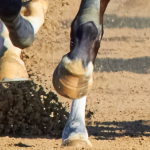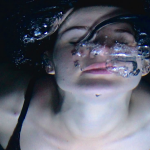When the Fiat breaks down—as it often does—I think, in my bad luck, I might be lucky. Stuck in a no-parking zone but right opposite a garage with its whining-pop sound of air-torque wrenches and reassuring smell of engine oil.
Maybe my presumption—they will help me, a woman stuck on her own—results in my failure. Maybe they can see I can’t pay.
I leave a note under the wipers, a hopeless appeal to the uniformed parking attendants, so quick to issue fines.
‘Car broken down. Gone to find help.’
I run off to find a phone, wondering who I can call? Who might be willing to do me a favour?
*
We bought the Fiat at a night-time car auction beside Wandsworth Bridge. We sat, cash ready on tiered bleachers while the cars paraded, engines revving, and gears rearing like rodeo horses. Scott suspected cowboys, but I admired the swaggering mechanics and became excited by the bang of a misfiring engine and slamming car doors. I saw an opportunity; we could score a bargain. Scott watched hawk-eyed as brake lights sparked in the dark, and a flicked wrist fired slashing windscreen wipers.
We bid on viewing, a five-minute hustling. I persuaded Scott to take a chance on hope, luck, and assumption. My expectation soared high as carrion birds, though for £200 it was too good to be true. And sure, the car was a banger. A metallic blue Fiat Strada banger.
A week later, we drove it to Wales. Two hundred miles from London, a pound for every one of them. When we left the motorway, taking the slip road towards Swansea Bay, only two gears were functioning, second and fourth.
“Jeez,” Scott said, “if any more gears go, we’ll arrive by reversing.”
Scott left me soon afterwards, in a failure of hope and a breakdown of faith and trust—this time, in me. I expected and assumed too much of him and blamed my own failures on other people, missed chances and bad luck.
The Fiat breaks down during the hiatus between my arrest for drunk driving and the start of a 12-month ban with a fine I can’t afford. The charge, like the loss of the car, I don’t think is my fault. I offered to drive, as sober chauffeur for buzzed-up friends. But I hadn’t eaten all day, and the one pint I justified turned into at least two while the band played in the sweaty pub, and my friends overheated as fast as their eyes dilated. I drove too fast into a speed trap in Putney. Breathalysed in the shocking cold night air, I was lucky not to be done for more. For the stash stowed by one friend under the passenger seat.
My prints were taken, rolled in staining black ink by a kind, handsome cop who held my fingers in his, telling me to relax.
“Those your friends?” he asked, nodding towards them. He sucked his teeth and told me I was unlucky.
*
I return alone to where the Fiat broke down within twenty minutes but the car is gone. I never see it again. I can’t afford to pay the fine to retrieve it.
The gap where it should be is large enough for me to stand in and walk around. It’s an odd sensation—being in my car’s space without it. It’s a small car, but it leaves a vacancy, emptier for the lack of looking for something inside it. There is no point in searching. A car is not dropped like a ring in a gutter or blown like a letter to flitter in the wind. A car isn’t lost amongst leaves and litter or thrown out by mistake. A car is towed or driven away.
I shout and glare at the men in the garage opposite, but my fury slides off their oily faces. Later, I wonder if they were in on it. If Clapham Manor Street is a lucrative side earner, being just off the High Road where chancers might park for a five-minute dash—short of time or cash or common sense. I wonder if the men in the garage tip off the parking attendants or summon the tow trucks to swoop like vultures from the Battersea pound.
Standing in the space where the car should be, I’m glad I don’t know what else is coming in the months ahead: hepatitis from surfing in storm swell in Cornwall; the attack by the man who forces his way into my flat looking for someone else; the broken toe where I kick him. The divorce.
I fill the car space with my anger at having no one to blame, and I look for what isn’t there—another chance, passive forgiveness. I see my note, crumpled, and discarded on the side of the road. I fail to recognise the truth of the few words I wrote. Broken down. Need help.
…
Biography
Emily Macdonald was born in England but grew up in New Zealand. Fascinated by wine as a student, she has worked in the wine trade ever since. Now freelance, she writes short stories and flash. In writing and in wines she likes variety, persistence, and enough acidity to add bite. Twitter: ek_macdonald | Website: macdonaldek11.com
Image: unsplash.com





